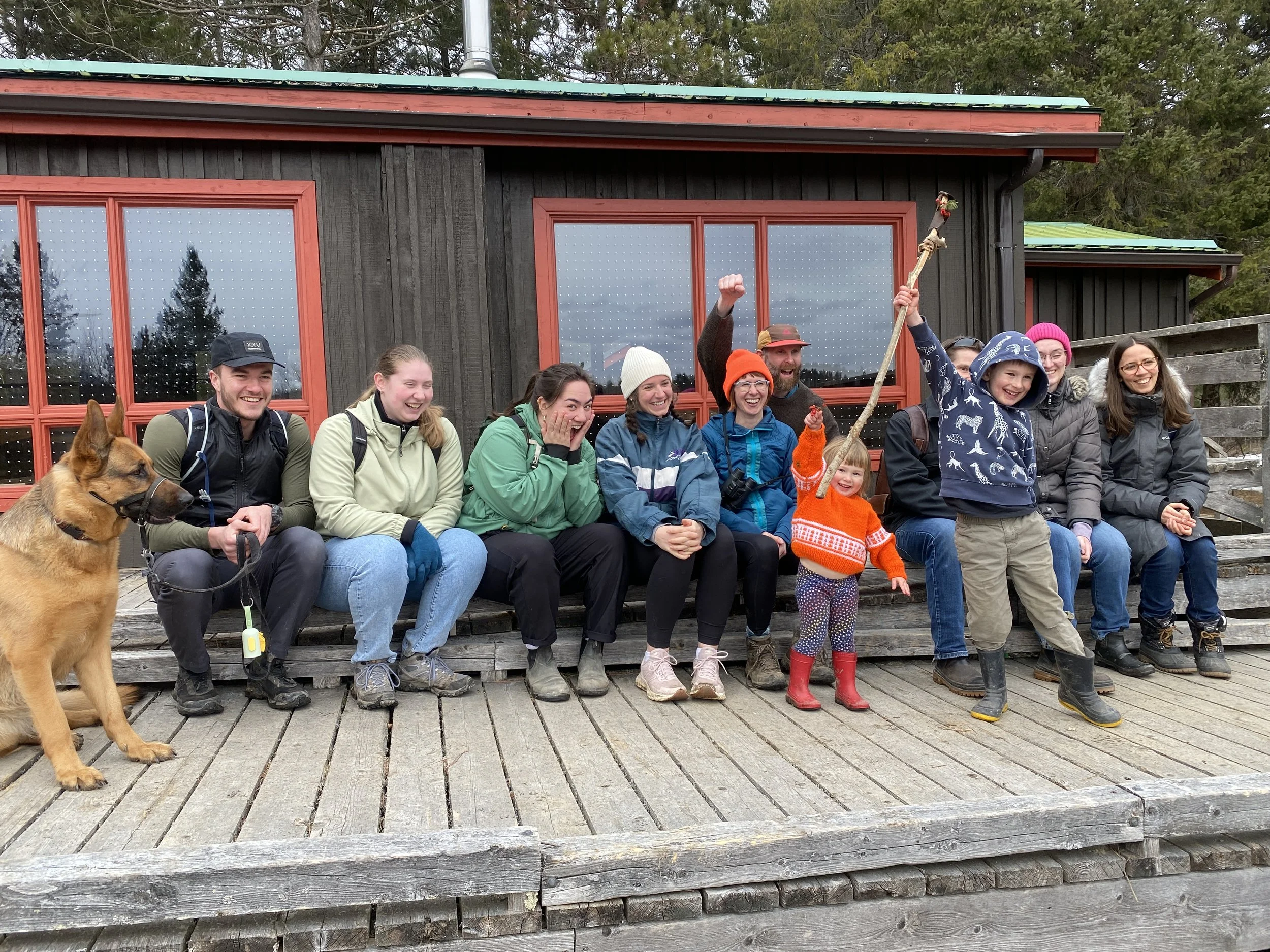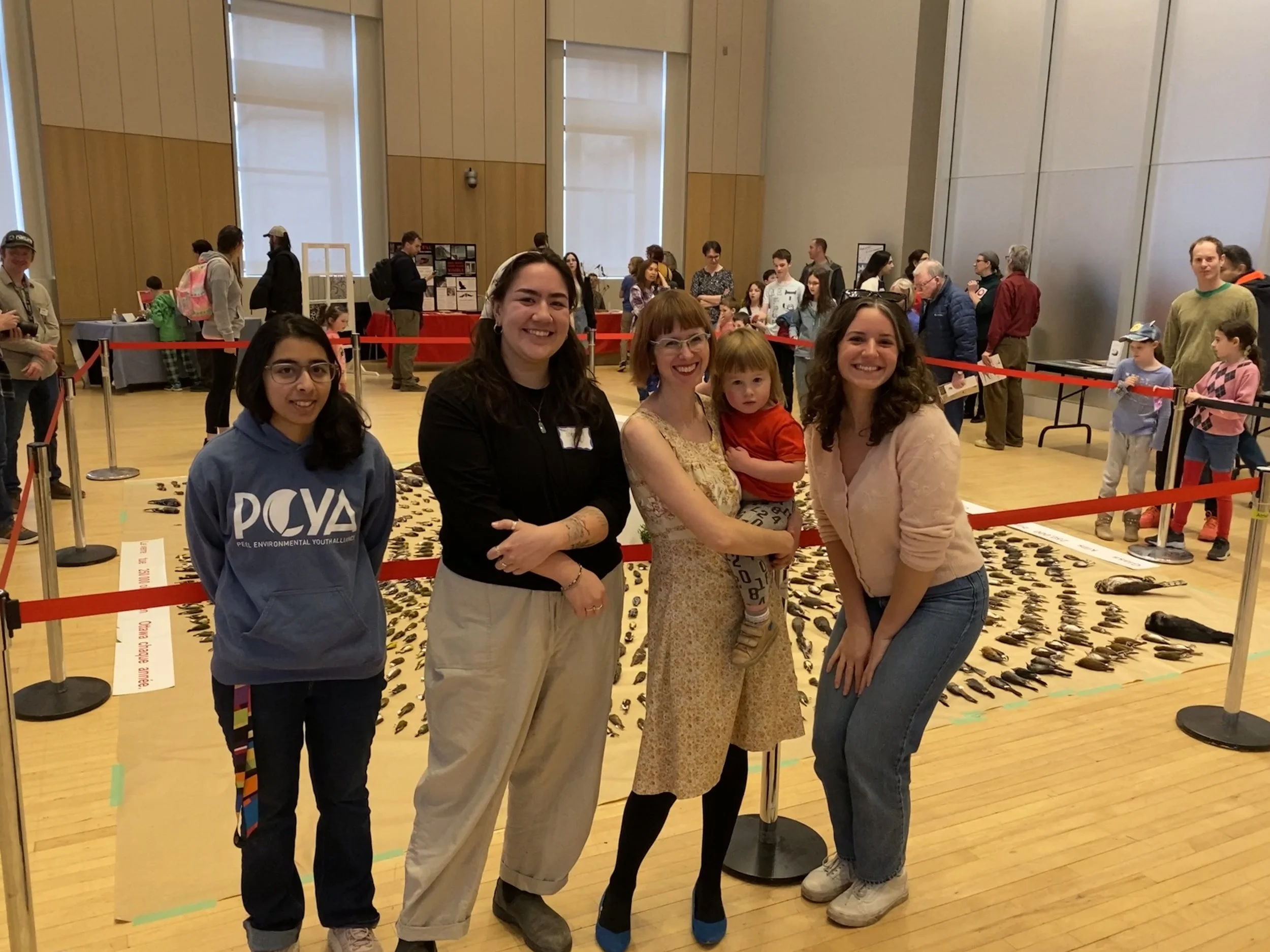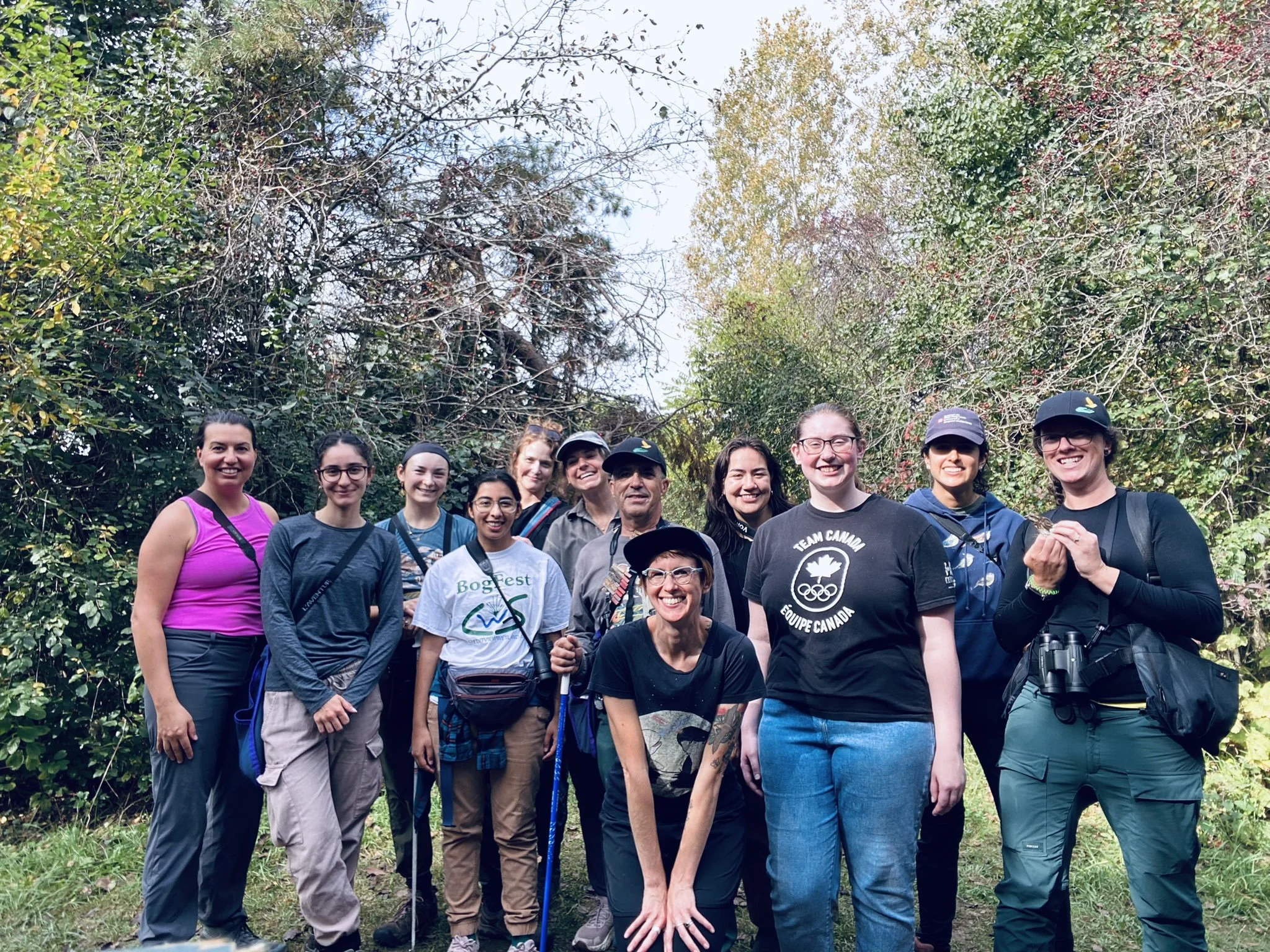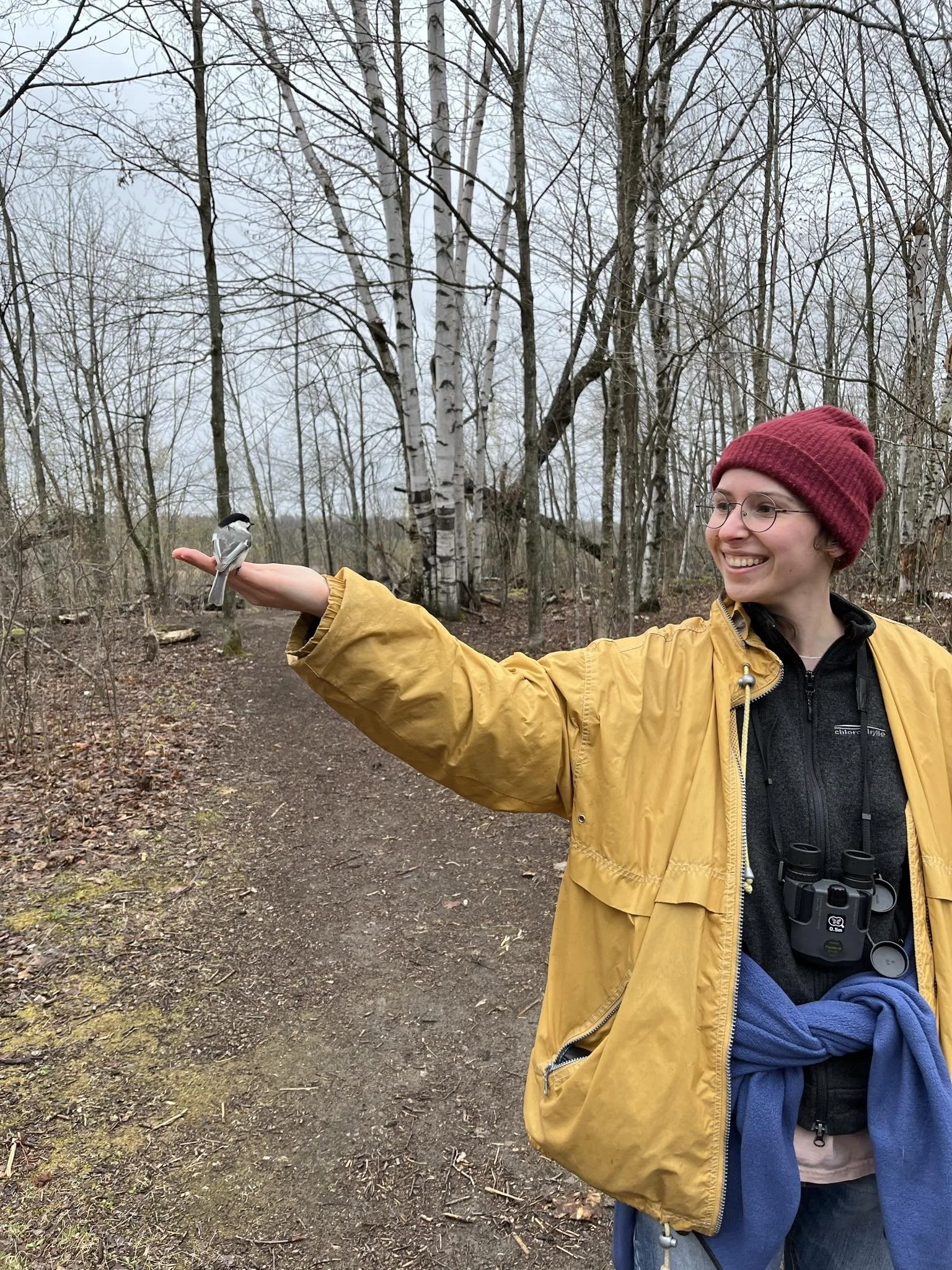Project Lead
-

Dr. Rachel Buxton (she/her)
Rachel is an Assistant Professor at the Institute of Environmental Science and Department of Biology at Carleton University. She leads a team that aims to generate knowledge to support and mobilize equitable conservation solutions. Her main research interests include urban bird conservation, soundscapes, ecological restoration, and the link between human health and biodiversity. She works with groups of practitioners, decision-makers, Indigenous Peoples, and stakeholders to ensure her research is applicable for mobilizing effective conservation solutions. In drawing from her experiences as a research scientist, mom, life-long learner, teacher, mentor, and community member, she is committed to making a difference for biodiversity conservation and environmental justice.
Collaborators
-

Dr. Barbara Frei (she/her/elle)
Barbara is a Research Scientist with Environment and Climate Change Canada . Barbara’s research has explored species-specific behaviour, habitat associations, population ecology, as well as broader themes including patterns of biodiversity, ecosystem services, landscape ecology, climate change and migration, and ‘bright spots’ in human-modified landscapes. She co-founded the McGill Bird Observatory (MBO) in 2004, serving as Director since 2012. Barbara is passionate about scientific communication, having training and taught hundreds of volunteers about birds and migration, given numerous public presentations on species-at-risk, and making guest appearances on local radio and children’s science TV shows. Barbara has worked with academics, NGOs, and communities to co-develop research collaborations, serving as a resource for local Indigenous-led research and conservation efforts, and co-supervising students from multiple universities.
-

Dr. Joseph Bennett (he/him)
Joseph is an Associate Professor at the Institute of Environmental and Interdisciplinary Sciences and Department of Biology at Carleton University, and a co-director of the Geomatics and Landscape Ecology Laboratory. Research in his lab focuses on conservation prioritization, invasion ecology, optimal monitoring, biogeography and spatial statistics. He has a particular interest in research to help protect threatened species, control invasive species, and create better environmental policies at the national level. He also designs optimization tools to help managers better achieve their conservation goals. His research is being used by numerous governments and non-governmental agencies, to help set their conservation priorities.
-

Dr. Jayme Lewthwaite
Jayme Lewthwaite completed a PhD with Dr. Arne Mooers at Simon Fraser University, where her research combined spatial ecology and phylogenetic information to help evaluate the biodiversity impacts of anthropogenic change on Canadian butterfly species. Her postdoc will expand on this work by constructing detailed modern and historical occupancy maps for each of these species in order to prioritize conservation actions. She is currently serving as a member of the Arthropod Species Subcommittee for COSEWIC (the Committee on the Status of Endangered Wildlife in Canada), and loves to hang out with her senior pup, Ava, and chase insects in her spare time.
-

Jennifer Holzer
Jen is the Research Director for the new Centre for Conservation Solutions at Carleton. She is a sustainability scientist with an environmental planning and policy background. Previously, she completed a Mitacs postdoctoral fellowship at Brock University studying human-nature connections in the Niagara region. She also served as a postdoctoral fellow on the Management and Governance team of NSERC ResNet, a pan-Canadian project to advance actionable ecosystem research in working landscapes. Her research currently focuses on how environmental knowledge is used by decision makers and communities to make tangible changes in policy and practice.
Current Students
-

Lilli Gaston (she/her)
Lilli completed her Bachelor of Science in Biology at the University of Victoria in 2022. Her undergraduate thesis explored fisher occurrence in relation to anthropogenic disturbance features across Alberta. Lilli has been very fortunate to work on a range of projects, such as monitoring large mammals in the boreal with the Applied Conservation Macroecology Lab, conducting migratory breeding bird surveys with Canadian Wildlife Service, and participating in species at risk conservation across the prairies with the Wilder Institute/Calgary Zoo. Growing up on beautiful Vancouver Island, Lilli’s passion for ecological conservation started at a young age. Lilli is especially interested in how species’ behaviours and distributions are shifting in response to anthropogenic landscape change, urban development, and climate change, and how this research can inform conservation initiatives across Canada. At Carleton, Lilli is using bioacoustic and camera trap data to investigate the effects of traffic mitigation and anthropogenic noise reduction on bird and mammal communities in urban protected areas. When she’s not out admiring wildlife, Lilli enjoys reading fiction, kayaking, baking, and spending time with her niece.
-

Stasha Lysyk (she/her)
Stasha completed her BSc in Ecology, Evolution, and Environmental Biology at the University of Alberta before pursuing a Master’s degree at Carleton University. She has worked for Agriculture and Agri-Food Canada and the Canadian Food Inspection Agency conducting invasive species surveys, and has spent time volunteering at the local nature centre in her hometown of Lethbridge, AB. For her MSc, Stasha will be collaborating with Safe Wings Ottawa and Environment and Climate Change Canada. Her research will explore the efficacy of retrofitting windows with bird safe designs in reducing bird-window collisions in Ottawa. Stasha can often be found birdwatching, knitting, drawing, and admiring nature.
-

Alyssa Pogson (she/her)
Alyssa completed her Bachelor of Science in Biology with a specialization in Ecology at the University of Ottawa. Her undergraduate honours thesis focused on how mouse activity changes in different weather conditions. She has a strong interest in conservation and ecology and has worked in several government agencies, including Environment and Climate Change Canada and Fisheries and Oceans Canada. At Carleton, she is working on identifying barriers in the Species at Risk Act process in Canada, as well as how we can overcome them. Alyssa enjoys knitting, baking, and reading, and showering her cat with (sometimes unwanted) affection.
-

Aalia Khan (she/her)
Aalia completed her undergraduate degree in Environment, Resources and Sustainability at the University of Waterloo. Hailing from suburban Mississauga, Aalia has a strong interest in urban biodiversity conservation and equity-focused Nature-based Solutions. She has held work positions with Ontario Nature, Public Health Canada, Agrifoods Canada, and the Canadian National Collection for Insects, Arachnids, and Nematodes. For her Master's thesis at Carleton, Aalia is exploring the outcomes of the Bird Friendly Cities program, with an emphasis on immeasurable effects (e.g., enhanced community engagement) and bird-arthropod relationships in urban environments. In her spare time, you can find Aalia out hiking, birding and looking for bugs.
-

Kristen Vlahiotis
Kristen completed her Bachelor of Science in Biological Sciences at Brock University. Her undergraduate thesis looked at the impact of urbanization on black-capped chickadee distribution in Southern Ontario. She has worked on a variety of research projects ranging from behavioural work with three-spine stickleback in Alaska to banding and monitoring Darwin’s finches in the Galápagos Islands. Kristen grew up camping and hiking every summer in Southern Ontario, which fostered a lifelong love for the outdoors. She is interested in exploring how anthropogenic influences such as urbanization and climate change impact vulnerable species and ecosystems. For her Master's project, Kristen will be studying bird nesting and reproduction in urban environments using Etuaptmumk, two-eyed seeing. When not completing research, Kristen enjoys drawing, reading, writing and getting lost in the woods.
-
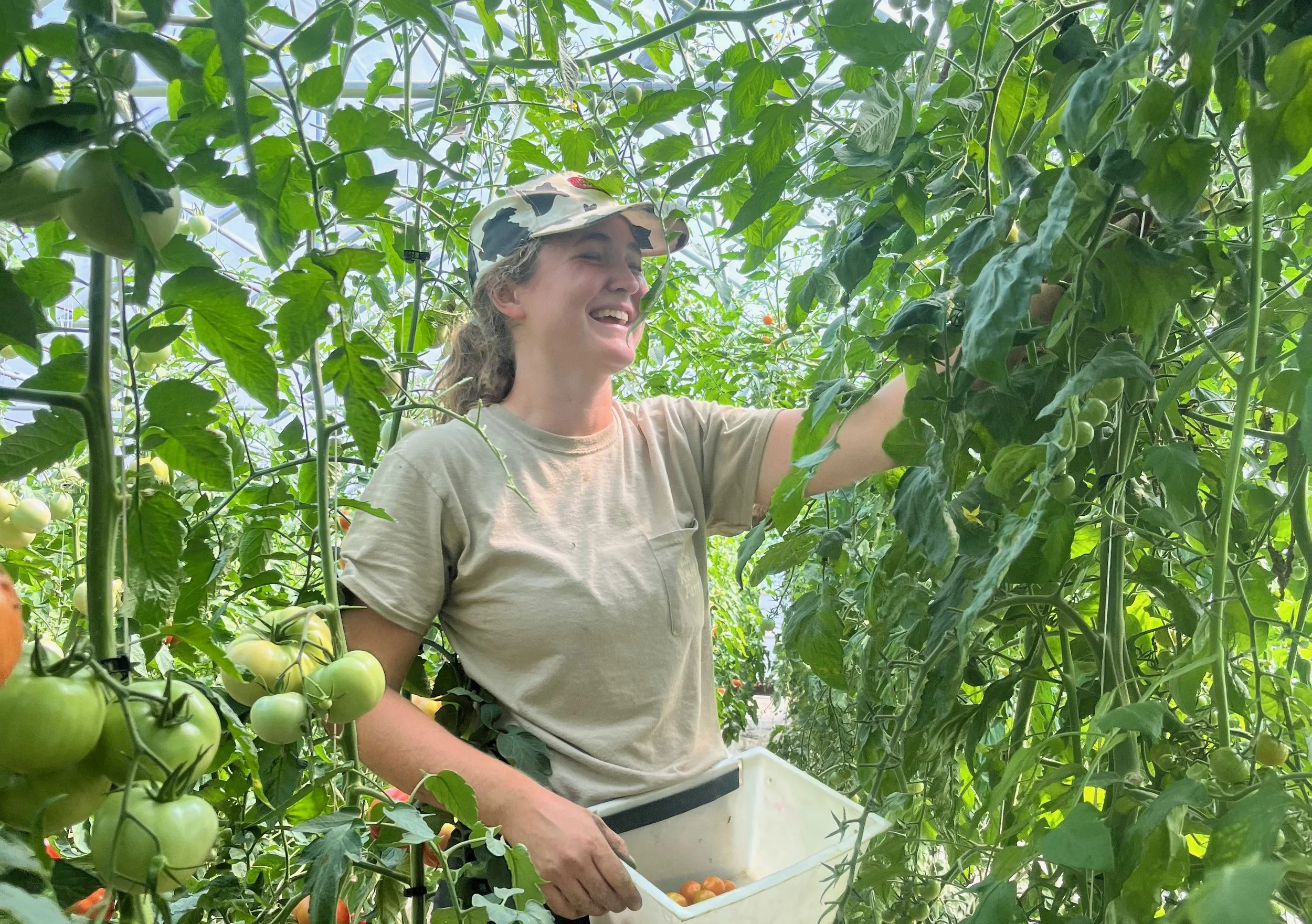
Caitlin Lewis (they/them)
Caitlin completed their undergraduate degree at Mount Holyoke College, where they researched the effect of anthropogenic disturbance on avian habitat use in US East Coast saltmarshes. Driven by their desire to connect with animals, nature, and community, they have spent the last seven years farming and maple sugaring. Most recently, they conducted avian point-count surveys with the Bird Conservancy of the Rockies in the Wyoming backcountry, and worked as a wildlife technician studying Arctic breeding birds with Environment and Climate Change Canada. Their MSc at Carleton will focus on strengthening our understanding of the abiotic and biotic interactions that impact the distribution of Arctic bird populations.
-
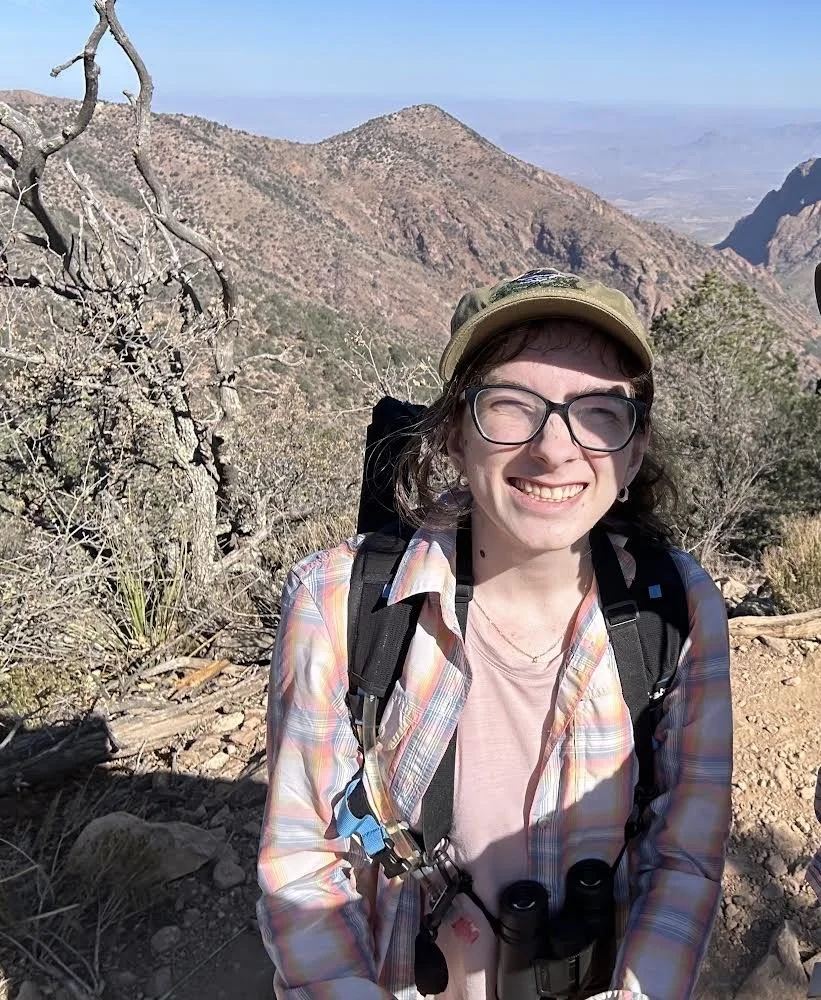
Wren Conner (she/her)
Wren completed her Bachelor of Science in Environmental Science and Policy at St. Edward’s University, where she led a research project monitoring bird diversity at habitat restoration sites. She grew interested in bird conservation as an Ecological Research Assistant at the Wild Basin Creative Research Center in Austin, Texas, where she worked on a project measuring songbird fear responses to anthropogenic sound. For her Master’s, Wren will be collaborating with Environment and Climate Change Canada. She will be studying wild bird communities on poultry farms in Ontario to find potential solutions to minimize the spread of highly pathogenic avian influenza. When she isn’t working, Wren is an avid birdwatcher, amateur nature photographer, and loves arts and crafts like embroidery and cross-stitching.
-

Alex Day (she/her)
Alex was born in Deloraine, Manitoba, about as far as you can get from the ocean, but has always had a passion for marine animals. After graduating from the University of British Columbia in 2019 with a double major in Creative Writing and Gender, Race, Sexuality and Social Justice, she returned to school to pursue her interest in seabirds. At Memorial University of Newfoundland and Labrador, Alex's honours research in marine biology focused on a mass mortality event affecting Thick-billed Murres (Uria lomvia) in the region during spring 2022. Her MSc will involve analyzing long-term acoustic data from White-Chinned Petrel colonies in the South Georgia Islands. School and birding take up most of her time, but she also enjoys cooking, reading, tending her sourdough starter, and trivia.
-
Laura Boyd (she/her)
Laura is currently completing her bachelor’s of Science in Biology with a concentration in ecology, evolution, and behaviour. For her undergraduate honours thesis, she aims to study species diversity of birds in Fort Severn, Ontario. She currently works in the Senate of Canada completing tasks in both English and French. Laura was born in Winnipeg, Manitoba where she grew up playing a variety of sports, including soccer and Irish dance. An avid reader, Laura can often be found curled up with her dogs and a good book.
-
Laura Tremblay Estable (she/her/elle)
Laura is currently completing her Bachelor of Science Honours in Biology at Carleton University. Her academic interests include conservation, ecology, and natural history. Last summer, she had the privilege of working in the National Herbarium of Canada as a Collections Assistant, where she digitized lichen and vascular plant specimens for the Letters from Lowlands project. Having grown up in the Gatineau-Ottawa region, Laura is excited to be working as a Field Technician in Gatineau Park, where she helps monitor biodiversity by conducting roadkill surveys and collecting acoustic and camera trap data. Her undergraduate thesis will explore the outcomes of traffic mitigation on road mortality in Gatineau Park. When she is not outside observing cool creatures, you can find Laura drawing, crafting, or collecting trinkets.
-

Sarah Green (she/her)
Sarah completed her Master of Forest Conservation at the University of Toronto, where she researched the potential of Miyawaki forests as green infrastructure. Her zeal for nature conservation has led her to work with environmental and urban forest non-profits, contributing to initiatives that promote nature-based solutions and greener communities. At Carleton, her PhD focus is on exploring the biodiversity benefits of tree plantings in urban settings.
Lab Alumni
-
Thesis: The Birds of Motown: exploring factors that influence avian diversity and occupancy in Detroit and the performance of automated acoustic analysis in an urban soundscape. Current Position: Research Assistant BCS Lab.
-
Undergraduate Thesis: Evaluating the benefits of avian biodiversity on human mental health.
